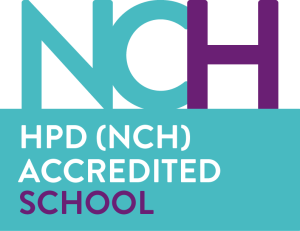Frequently Asked Questions
If you are thinking of training to be a hypnotherapist, there are a plethora of training schools out there. We hope the following will help you make an informed choice. However, one of the easiest options is to ask to attend one of their training courses, maybe just before the lunch break, so you can chat to the tutors and the students, as well as getting a feel for the kind of approach favoured by each particular school. If this is not possible most tutors will be happy to meet you for an informal chat.
How many people have they trained?
If a training school has been established a number of years, they will have trained a number of students. As most students also register with the NCH (see below) in order to achieve their externally validated HPD (Hypnotherapy Practitioner Diploma), many previous students will be registered with the NCH. If in doubt, therefore, do contact the NCH for confirmation of your chosen training school's years in business.
How long have they been established?
If their course is registered with an organisation such as the NCH (National Council for Hypnotherapy) you may be able to call the organisation and ask how long any particular school has been in business.
Does the course equip you to practice?
Some schools divide their courses into, for example, foundation, certificate and diploma. Others may be highly theoretical with little practical application. Ensure that if you wish to go into practice that you will be able to do so.
Clinical, Medical, Cognitive - what does it all mean?
There are no real distinctions. Some schools may have a particular 'bias', such as teaching more NLP or including more Ericksonian Hypnosis, but in general most established training schools will adhere to the National Occupational Standards for Hypnotherapy - for further information please contact either ourselves or any of the Hypnotherapy Registering Bodies.
How long does training last?
This is important! The UK Confederation of Hypnotherapy Organisations (UKCHO) insists that schools train to minimum standards of 120 hours face to face and 450 hours of total study time. Although the Academy runs shorter 'Fast Track' training or registered medical, dental and psychological professionals, those students with no prior knowledge and/or those individuals wishing to study for the HPD will be required to achieve a minimum attendance.
Can you speak to any of their past students?
This is a question we are often asked! Of course, all our students details are confidential. However, we are happy to pass your email on to a couple of our many satisfied students, who will be able to talk to you in confidence about our course.
Are your tutors qualified supervisors and what other qualifications do the tutors have?
These will very, but its worth checking out their original training, how much continued development they undertake and any other relevant qualifications they have (for example in training or assessing). Also, how experienced are they as hypnotherapists?
Although this is not essential, it is important that all students are adequately supervised, both during and after training. Carole Wan, one of our Tutors and Directors, has been a qualified, accredited supervisor with the National Council for Hypnotherapy for over ten years.
Does the course fulfil UKCHO criteria?
See above!
How much practice management and support will I receive and do the trainers see real clients?
This is often considered an essential part of the training, particularly by our students! You could be a brilliant hypnotherapist but without the business and practice management skills to attract clients you will not succeed. Both Carole Wan and Alan Cooper are full-time therapists and trainers, and are therefore eminently suitable to advise you how to run a successful practice. After all, that's just what they've been doing for over 20 years! Current practice is an extremely important element of our training. We ensue that we include up-to-date advice and information on how to run a successful practice as an integral part of our course, in addition to offering post-course support for all our students. We will often invite previous students, who are successful therapists in their own right, to visit out training on the final module, along with our web designers and others who can help with your business.
Will I learn techniques and be able to practice them?
The practical elements of our course are extremely important, as this is where you will be able to practice the skills you are learning in a safe, supportive environment. This will build your confidence and equip you to deal with real clients after qualifying. We run many of our courses from our own premises. After many years of using hotels, often inadequate in terms of quiet and practice areas, we can now provide a purpose-built training area, along with break-out rooms, for an unsurpassed training experience.
Are the qualifications in recognisable disciplines and will this equip me to practice?
If you take a look at some of the hypnotherapy qualifications on offer, you may encounter some confusing words: changework, cell regeneration, absence control, discursive, wellbeing modelling..... If you aren't sure what they are, will your clients be impressed if you hold a qualification in these disciplines? The qualifications we offer are clear and concise: A DIPLOMA in Hypnotherapy - not cognitive, medical, Ericksonian, analytical or solution-focused - we cover most well-known models of hypnotherapy, in accordance with the National Occupational Standard guidelines, together with a DIPLOMA in Psychotherapy - to give you a good understanding in the psychotherapeutic models that underpin our work.
A DIPLOMA IN NLP - in order to differentiate this award from the Practitioner in NLP, often awarded by NLP training organisations. Our own qualification concentrates on the use of NLP in the therapy room rather than for selling, training or in customer services!
A CERTIFICATE IN STRESS MANAGEMENT - An essential training in this important growth area. Students have the option to register for further training with ourselves, working towards an Advanced Diploma in Stress Management.
Most importantly, we offer the HPD - Hypnotherapy in Practice Diploma, the industry award, which is externally verified and accredited by the NCFE, a National Awarding Body and meets all the Learning Outcomes of the National Occupational Standards for hypnotherapy in the UK. THERE IS NO ADDITIONAL COST FOR TAKING WITH AWARD WITH ACMHL.
I have some special needs - am I still able to train with you?
Of course! We are able to offer different learning styles to meet the needs of our students. This could mean the opportunity to complete your HPD by professional discussion / recordings for those who would find difficulty with writing. We have an Equal Opportunities Policy which you are welcome to see.
What is the tutor/student ratio?
We teach in small groups, usually 10 to 15 maximum, so people receive individual attention. We are available in between training sessions and your assessor will guide you through the homework and compilation of your HPD Portfolio. There are always two trainers and our training is run by the Directors only, unless exceptional circumstances prevail.
What is the CNHC and why are they important?
Hypnotherapy is currently unregulated in the UK. However, following recommendations made by the House of Lords Select Committee, discussions have taken place into the voluntary self-regulation of hypnotherapy. The Complimentary and Natural Healthcare Council (CNHC) was set up by the Department of Health in 2010. The Department of Health recommends that you choose a hypnotherapist that is registered with the CNHC. Registration with the CNHC wil be seen as the gold standard for complimentary therapy practitioners. Likewise, the HPD is the gold standard in hypnotherapy traiining. ACMHL is an accredited CNHC training school.
What is the Hypnotherapy Practitioner Diploma?
The Hypnotherapy Practitioner Diploma (HPD) is a qualification established in June 2002 and is accredited jointly by the National Council for Hypnotherapists (NCH) and externally validated by the Northern Council for Further Education (NCFE). The HPD has been accredited by the NCFE to guarantee that it is of a high standard. The HPD has 45 academic credits from the Open University at Undergraduate Level 1 that counts towards a degree. The HPD is a nationally recognised qualification which leads to greater public acceptance of our profession. The HPD will give you enhanced professional status and is a qualification based on what you know and what you can do. Gaining the HPD will undoubtedly give you the edge over your competitors and prospective clients can verify your qualifications easily. Training with ACMHL will give you all the tools you need to practice confidently with clients and to complete your HPD.
How do I obtain the HPD and what is involved?
The aim of the HPD is to provide a professional qualification in hypnotherapy. The Diploma is made up of a number of different Learning Outcomes. Evidence for the Learning Outcomes is provided by completing your portfolio which consists of 62 short questions and 4 case studies. Each question needs to be sufficiently evidenced to meet the Learning Outcomes and your assessor will guide you on this. ACMHL, as a NCH accredited training school, offers the HPD to all our students. The assessor at ACMHL, Yvette, is a qualified NVQ Assessor and has several years of experience working with the HPD. Students will be given several questions as part of the homework at the end of each training weekend and once completed the student will send the work to Yvette who will offer feedback and ensure that your work meets the required standards to cover the Learning Outcomes in sufficient detail. Yvette will also advise and assist in putting together your portfolio once all work is completed. As well as the written portfolio we also offer the Professional Discussion route for obtaining the HPD. This is usually offered to students who have a background in therapy or medicine, or for those who find written work difficult. Yvette will be able to advise on your suitability for this route, and the process involved.









